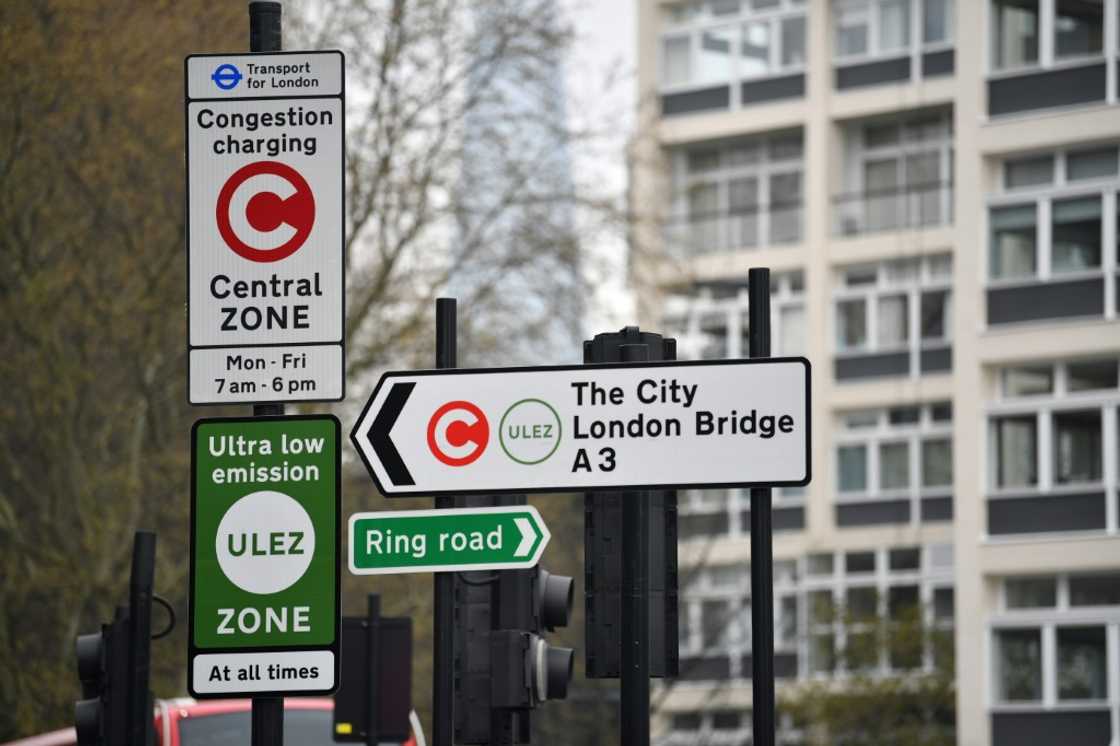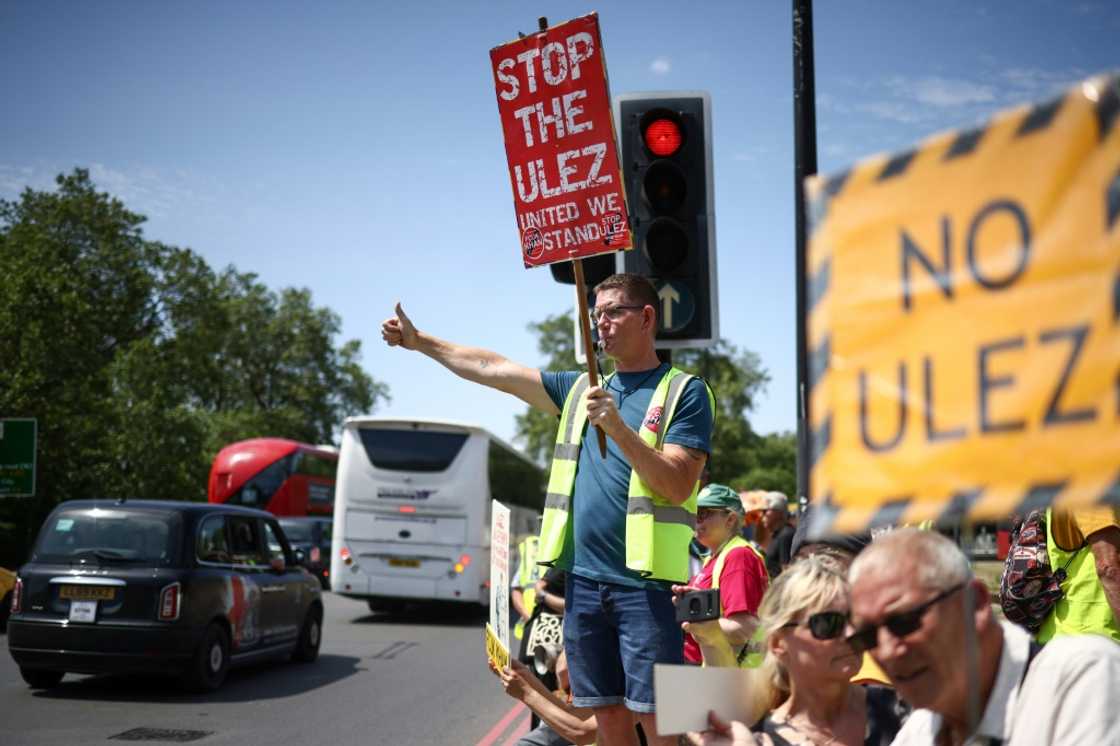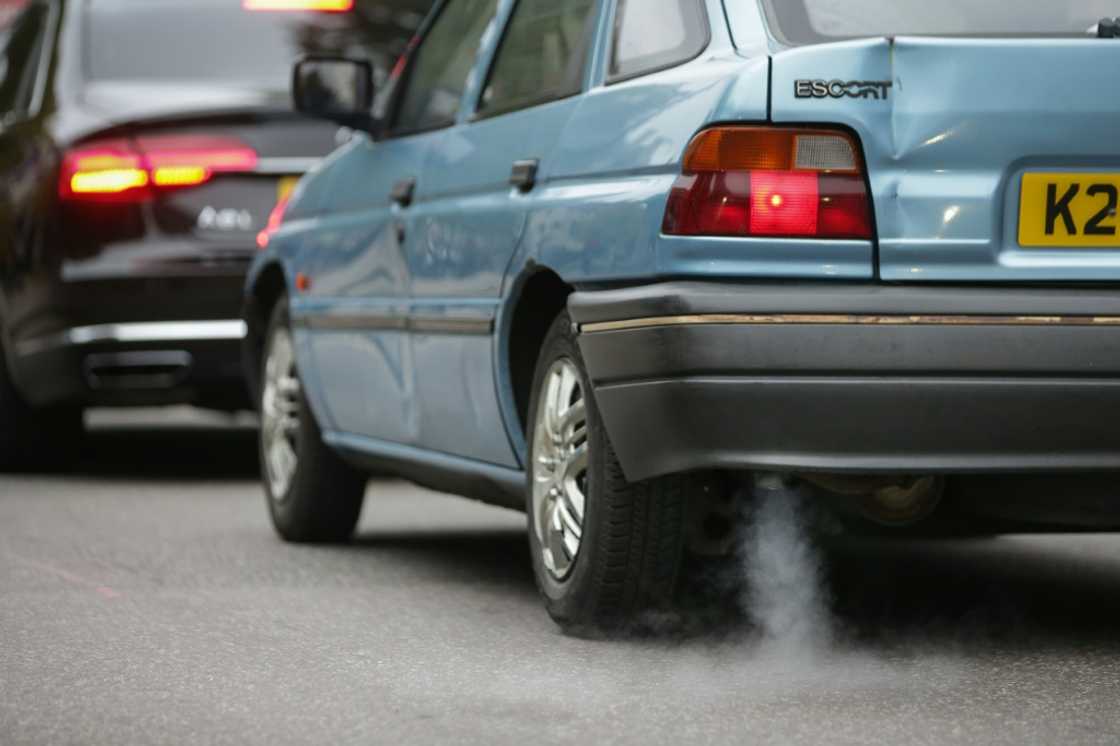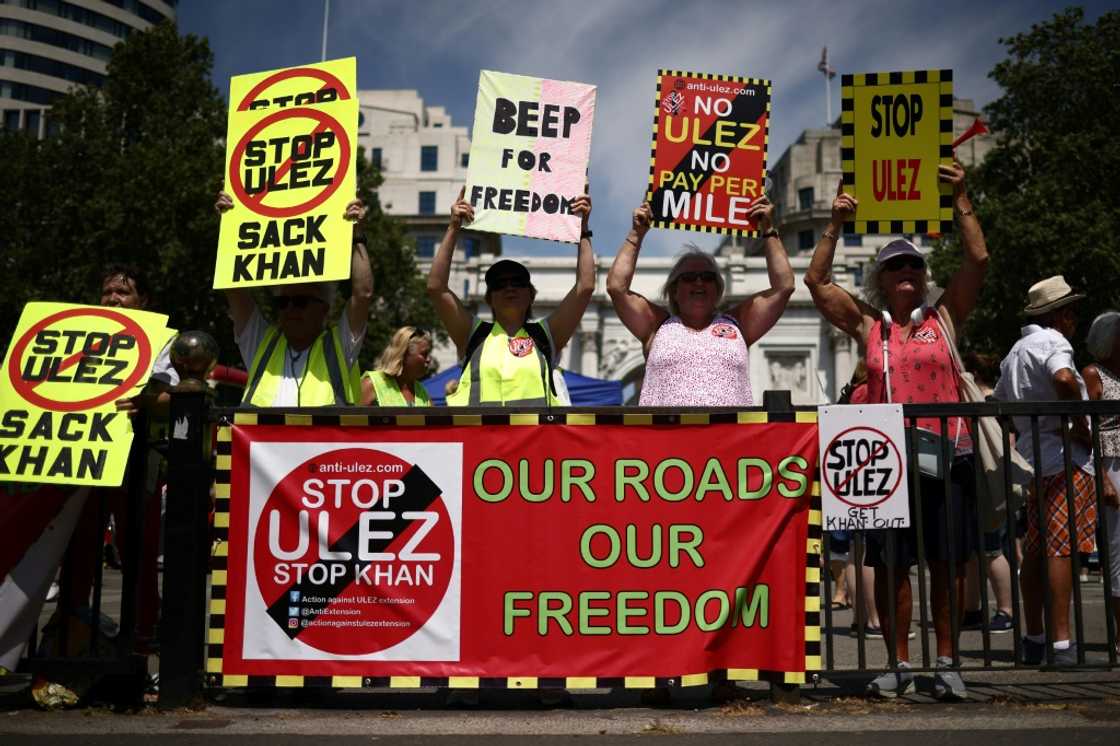Legal battle looms over London's expanding vehicle pollution fee

Source: AFP
PAY ATTENTION: Enjoy reading our stories? Join YEN.com.gh's Telegram channel for more!
A UK court will on Tuesday consider contentious plans to extend a scheme obliging the most polluting vehicles to pay for using London's roads, as opponents engage in protests -- and even sabotage.
The High Court case comes just weeks before London Mayor Sadiq Khan's expansion of the Ultra-Low Emission Zone (ULEZ) is set to take effect.
The scheme -- first introduced in 2019 and separate from the city's two-decades-old congestion charge -- requires more polluting vehicles to pay a £12.50 ($16) toll on days they are driven within inner London.
Its extension to all of Greater London from August 29 has prompted a fierce backlash from many living in and around the newly encompassed areas, who face fines of up to £160 for each day they fail to pay.
"It ain't right. They're hitting working class people again," Chris Fordham, 62, told AFP as he pulled up at a supermarket just beyond southeast London in his non-compliant 2012 diesel van.
"I'm thinking about packing up work," added the self-employed builder, who crosses into the capital almost daily, blaming the imminent new charge and other soaring costs.
Several outer London local authorities and neighbouring Surrey County Council are lodging a court challenge to the way Khan decided on the expansion.
Environmental group Greenpeace criticised the councils for going to court, accusing them of "fighting completely the wrong battle".

Source: AFP
"They should be putting their energy and resources into bringing down air pollution, not a key anti-pollution measure," said Areeba Hamid of Greenpeace UK.
Khan, re-elected to a second term in 2021, ordered the new measure in November despite a public consultation suggesting most Londoners oppose it.
'Harmful'
The Labour mayor, 52, insists the bigger ULEZ will help improve the city's "toxic air pollution", which causes thousands of annual deaths and life-changing illnesses.

Source: AFP
He developed adult-onset asthma nine years ago and blames it on decades of breathing the capital's poor air.
In a legal first in 2021, a coroner ruled that poor air quality from vehicle emissions made a "material contribution" to the death of a nine-year-old London girl who suffered a severe asthma attack.
London's ULEZ mirrors similar low-emission zones to improve air quality in more than 200 cities in 10 countries across Europe.
Petrol cars registered pre-2006 and diesel vehicles first registered before September 2015 are unlikely to meet the minimum emissions standards required.
Transport for London (TfL) -- a local government body -- estimates that fewer than 200,000 such vehicles currently enter the new zone, based on existing ULEZ camera analysis.
But the RAC motoring group used a freedom of information request to discover that more than 850,000 ineligible vehicles are registered within London alone.
Khan argues that many of those are not actually driven in the capital.

Source: AFP
He has launched a scrappage scheme providing some funding to eligible vehicle owners. But critics say it does not go far enough.
With Britain gripped by the worst cost-of-living crisis in a generation, many affected have been left feeling helpless.
'Help!'
"It's the wrong time with the cost of living," said pregnant mother-of-one Sarah Farmer, who lives in Swanley, near London.

Source: AFP
The 31-year-old regularly crosses into the capital in her 2003 Ford Mondeo for her cleaning job and to visit relatives.
To compound problems, her partner's 2014 diesel van used for his bricklaying job is not compliant either -- and the couple cannot afford a new car.
"I'm not actually against it," she added of the ULEZ, "but they need to give people more help."
Some are escalating their opposition, with TfL confirming that more than 200 enforcement cameras have suffered sabotage.
London's Metropolitan police have launched a "proactive operation" in response, charging two men in May with criminal damage and other offences.
Critics will stage their latest anti-ULEZ protest outside the High Court in central London ahead of Tuesday's hearing.
Phil Elliott, 59, a haulage industry driver who has long campaigned against aspects of London's road-charging schemes, has been spearheading opposition, largely through Facebook.
He told AFP the new toll is the final straw for many and predicts growing civil disobedience in Britain, emulating the so-called yellow jackets protests seen in France.
"Desperate times take desperate measures and unfortunately what you've got (is) people are getting desperate now and governments aren't listening," Elliott said.
"Before it gets too messy, people need to start listening."
New feature: Сheck out news that is picked for YOU ➡️ click on “Recommended for you” and enjoy!
Source: AFP




